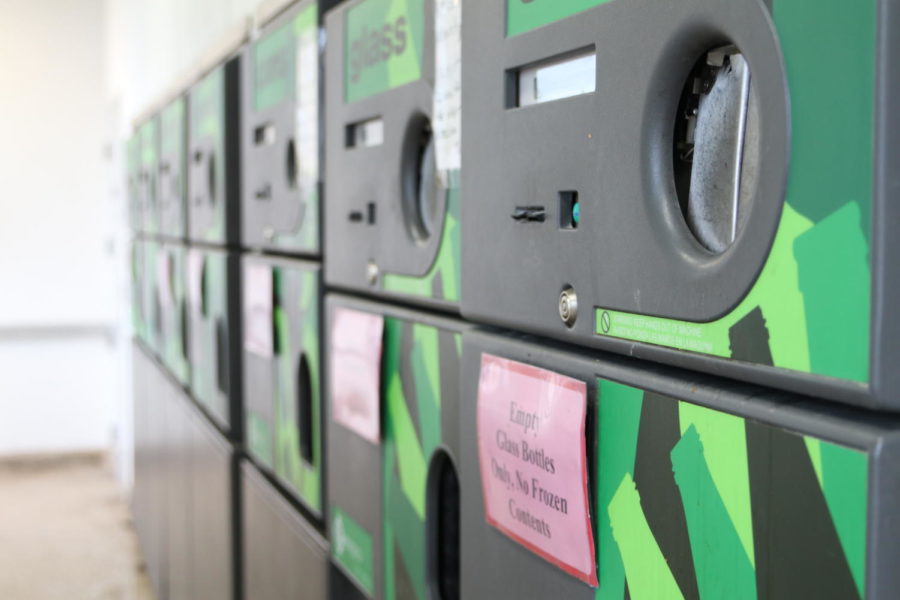Felker: Why repeal the bottle deposit bill?
Chris Anderson/Iowa State Daily
Plastic, aluminum, and glass bottle returns at Hy-Vee on Lincoln Way.
March 26, 2017
As if he were undertaking some sort of Herculean, altruistic, self-sacrificing effort, the legislator and manager of the bottle deposit bill’s proposed termination, Rep. Ross Paustian, comments that “This is a multi-year effort. This isn’t an easy lift.”
Yes, I will agree with him there. It certainly does take an extended and a combined effort to undo productive, effective legislation — so goes the rational world. The state Legislature operates with this kind of thing in mind. Were it otherwise, it would be a turbulent and an unhappy world for us all indeed.
This endangered “Bottle Bill” — which provides for the redemption and then recycling of 86 percent of all beverage containers sold in Iowa, saves enough energy to heat 42,845 average Iowan households and precludes 82,352 tons of litter from filling our Iowan landfills or sullying our Iowan landscapes — is a thoroughly practical piece of legislation.
It is a proven solution to a proven problem, and to repeal it in favor of an unexplained, ambiguous “recycling program,” and an inexplicably byzantine set of taxes, funds, proposals and reforms is pure imprudence. This is an established system that effectively addresses a very salient issue, and I am surprised at our state’s Republican majority’s apparent wish to replace its success with a confusingly involved mesh of alternative solutions. What was so wrong with the direct approach?
It’s not difficult to measure the bottle bill’s impact. Roadside ditches, narrow strips of forest, even farm ponds and retention basins and many more spaces besides — what might all be final resting places for deposits of empty beer bottles and soda cans — become effectively trolled and cleaned by redemption seekers; these are oftentimes those individuals who might be unemployed elsewhere, or are homeless. This is a valuable community service on all sides. To so recklessly eliminate it would be unwise.
For those closest to the redemption process itself, the bottle bill actually represents a way of life. At least some of the scavengers themselves — arguably closest as anybody to the situation’s reality — are adamant that the bottle bill’s repealing will have very direct, measurable results.
And I see no reason why grocery stores should be against their link in the process’s chain. How often is the money from redeemed cans and bottles simply spent on the spot at these same grocers? And how often does this encourage other, additional sales?
I am surprised they would even be interested in moving the redemption offsite, or eliminating it. It would be exaggeration to claim the process rewards grocery stores with free marketing and return customers, but I would think the benefits outweigh the negatives, and this is probably not so far from the truth.
Of the negatives, if it is the mess and the sanitation that is the issue, then I would recommend an alteration of the program rather than its proposed removal. Provide for new redemption centers to be built and managed outside of grocery stores. Increase the sales fee and redemption reward — which has been bafflingly unaltered for 39 years — and even allow these centers to make a profit. They will take up the reins, which our grocery and convenience stores ostensibly no longer wish to hold.
In short, it is a bit bizarre that our state’s Legislature has chosen to spend even a speck of its time in contemplation of this bill’s repealing. If it has, conversely, apparently deemed this a matter worth its collective consideration, then I would urge it to make a few tweaks and a few modernizations to the system rather than doing away with it entirely — especially in favor of such flimsy replacement policies.







